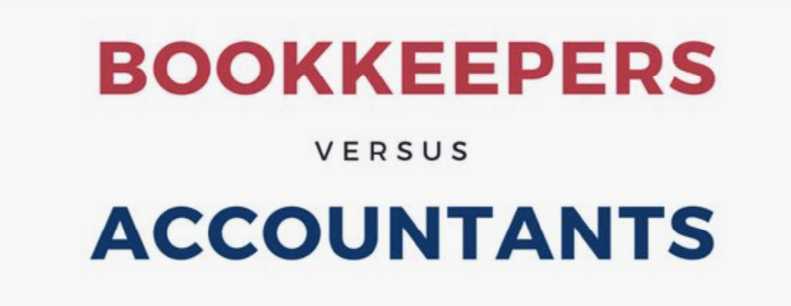It’s fair to say that COVID-19 disruptions have redefined what it means for businesses to be flexible operationally and financially. More than ever, business owners need to be on top of cash flow, pivot to new operational strategies and understand different financing alternatives. They also need to know the latest government assistance available and how to apply for them.
As this creates a huge burden on many, we want to explain what accountants do and when you should hire an accountant to grow your firm and navigate these challenging times.
Does a business need to have an accountant?
Depending on the industry you’re in and the size of your operations, you may find accounting, tax, payroll and bookkeeping tasks taking up your time. Generally, the bigger and more complex your business, the more time-consuming these tasks become — and that’s when you should hire an accountant to reduce your load.
Having said that, even self-employed individuals and sole traders will benefit from tax return and tax planning advice. So while you don’t have to have an accountant, owners of all kinds of businesses find it useful to engage one.
How an accountant adds value
An accountant can be a generalist or specialise in financial reporting, tax, management accounting or software implementation. The type of accountant you should hire will depend on what your needs are.
While the profession is known for compliance services — which involves preparing financial statements, BAS statements and tax returns — they’re also experts in analysing financial information and providing valuable business advice. If your organisation can benefit from support in the following areas beyond traditional compliance work, then it’s worth considering getting an accountant’s help.
- Industry insight
An accountant knowledgeable in your industry can provide intelligence on how your business is doing compared with your competitors. This is pivotal in the post-COVID landscape because it can help you identify changes you need to make to stay viable. By benchmarking your operations, you can figure out whether your production costs, overheads, staffing costs, pricing and sales volumes are in line with industry norms.
- Bookkeeping
Many accountants offer bookkeeping services. However, if you prefer to do this in-house, an accountant is well placed to help you design and implement an effective record keeping system.
- Cash flow management
Cash flow is key to survival of any business, particularly in times of uncertainty. Yet according to the ATO, a vast majority of businesses experienced cash flow difficulties pre-COVID.
To improve your cash flow management, an accountant can work with you to figure out how much money will be coming in and going out over the next 12 months. This allows you to reduce costs or increase prices in a timely manner and ensure you’ve always got enough money in the bank.
- Budget smartly
With their experience, market knowledge and understanding of your business, an accountant can be key to setting up a realistic budget of costs and revenue targets while ensuring you manage your debt.
- Business strategy and planning
An achievable business plan can help you secure finance and guide you toward financial and business goals. Whether you want to attract the bank or other investors, an accountant adds value by ensuring the assumptions in your business plan are reasonable. He or she can assist in writing and pitching loan applications too.
- Managing your growth stage
A growing business needs to be carefully managed to stay afloat and achieve profitability. Why? Because as sales grow, so will your outgoings. And more often than not, you’ll need to meet higher costs before any money comes in from your sales.
As you can see, it’s crucial to plan for increased sales levels. By modelling costs and cash flows, your accountant can help you choose a financing alternative that supports your operations. He or she can analyse your expenses and revenue over time, so you can identify factors that impact on the profitability and determine key performance indicators that drive your business.
- Guide business succession planning
As experts in business valuation, tax minimisation strategies, due diligence and estate planning, your accountant is key to a cost effective exit plan — whether that’s to sell your business, retire as a silent partner or let your kids takeover.
Accountant vs bookkeeper: what do they do for a business
A common confusion for small business owners is whether to hire a bookkeeper or an accountant.
The main role of a bookkeeper is to record financial transactions into your books. According to the Institute of Certified Bookkeepers, you can expect bookkeepers to:
- Process purchases, sales, expenses, receipts and payments
- Process payroll data
- Prepare bank and credit card reconciliations
- Produce reports for GST returns and prepare returns if they’re a registered BAS agent
- Produce reports for owners and accountants
- Keep records
In summary, a bookkeeper is useful for establishing record keeping procedures and maintaining business files.
Accountants on the other hand, are experts in reporting, analysing and interpreting data. He or she will prepare financial accountants and/or tax returns based on the transactions in your books.

Do I need an accountant if I use accounting software?
If you use Xero or QuickBooks, both of which are generally considered to be the best business cloud accounting software on the market, you may find it sufficient to have a bookkeeper perform some financial reporting tasks.
However, you can still benefit from an accountant’s advice for issues relating to cash flow, budgeting, tax planning and business strategy.
As a Xero Platinum Partner, POP Business can connect you to the cloud so you can enjoy benefits like streamlined invoicing, better sales data and improved record keeping. Talk to POP if you want to get started — we offer all our clients a 20% discount on their Xero subscription.
How much should accounting cost a business?
Even if you know when you should hire an accountant for your company, the price tag can be off-putting as many charge by the hour which can add up quickly. If you want predictable and affordable business advice, Pop Business offers a membership subscription for only $99 a month — it’s a great investment for impactful guidance that can prevent costly mistakes and identify improvement areas.
We’re here to save you time and energy so you can focus on building a profitable business in the post-COVID environment. So head to POP now!


